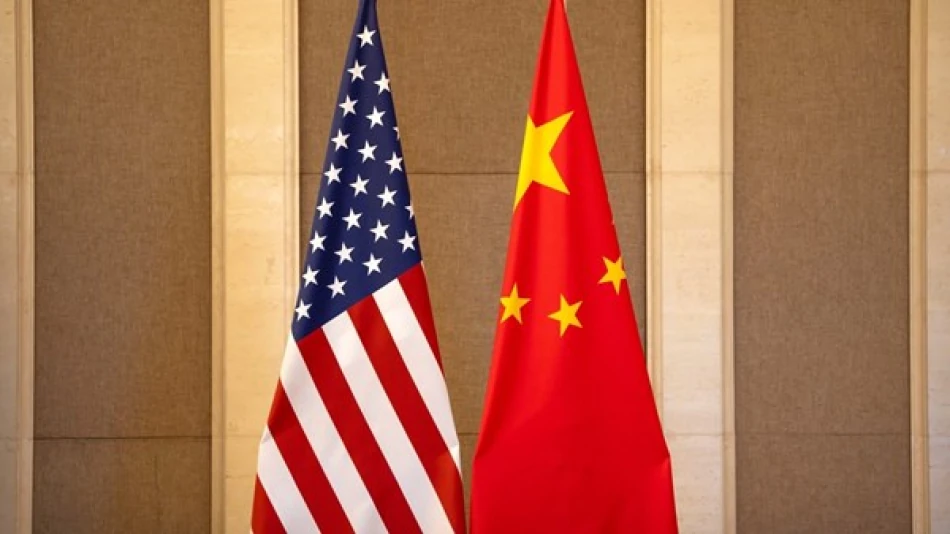
Top US Business Delegation Visits China to Reignite Trade Negotiations
High-Stakes US Business Delegation Heads to Beijing as Trade Relations Enter Critical Phase
A senior American business delegation led by FedEx CEO Rajesh Subramaniam will visit Beijing this week, marking a pivotal moment in US-China commercial relations as both nations navigate mounting economic pressures and geopolitical tensions. The trip, organized by the US-China Business Council, signals corporate America's urgent push to stabilize what remains the world's most consequential trade relationship.
Corporate Leaders Push for Direct Dialogue
The delegation includes Boeing executives and US-China Business Council Chairman Sean Stein, representing industries at the heart of bilateral trade disputes. Their mission appears focused on reviving stalled commercial discussions through direct engagement with Chinese officials, bypassing the often-gridlocked government-to-government channels that have dominated recent diplomatic efforts.
This corporate-led approach reflects growing frustration among American businesses with the slow pace of official trade negotiations. Companies like FedEx and Boeing have seen their China operations significantly impacted by regulatory changes and market access restrictions over the past three years.
Strategic Timing Amid Economic Headwinds
The visit comes as both economies face distinct challenges that make commercial cooperation increasingly attractive. China's post-pandemic recovery has shown signs of slowing, with youth unemployment reaching record highs and consumer confidence remaining fragile. Meanwhile, US companies are grappling with supply chain disruptions and seeking growth markets beyond domestic borders.
Boeing's Critical Stakes
Boeing's participation carries particular significance given the aerospace giant's complex relationship with Chinese aviation authorities. The company has faced regulatory hurdles in China following the 737 MAX crisis and subsequent geopolitical tensions. China represents roughly 25% of Boeing's global market potential, making any progress in market access crucial for the company's long-term growth strategy.
Business Council Strategy: Pragmatic Engagement
The US-China Business Council's decision to lead this initiative demonstrates a shift toward practical diplomacy over political posturing. Unlike government delegations bound by broader strategic considerations, business leaders can focus on specific, measurable outcomes that benefit both sides.
This approach mirrors successful corporate diplomacy seen in other complex international relationships, such as German business engagement with Russia before 2022, or ongoing commercial ties between rival nations in Southeast Asia.
Market Implications and Investor Outlook
For investors, this delegation represents a potential inflection point in US-China commercial relations. Successful outcomes could unlock significant value for American multinationals with China exposure, particularly in logistics, aerospace, and technology sectors.
However, the broader context remains challenging. Recent US restrictions on semiconductor exports to China and Beijing's emphasis on technological self-reliance suggest that any commercial progress will likely be incremental rather than transformational.
Testing Ground for Future Relations
The delegation's reception in Beijing will serve as an important barometer for the trajectory of US-China economic relations. Chinese officials' willingness to engage substantively with American business leaders could signal Beijing's interest in compartmentalizing commercial relationships from broader geopolitical competition.
This pragmatic approach has precedent in China's handling of European business relationships, where commercial ties have remained relatively stable despite political tensions over issues like Hong Kong and Xinjiang.
Most Viewed News

 Layla Al Mansoori
Layla Al Mansoori






